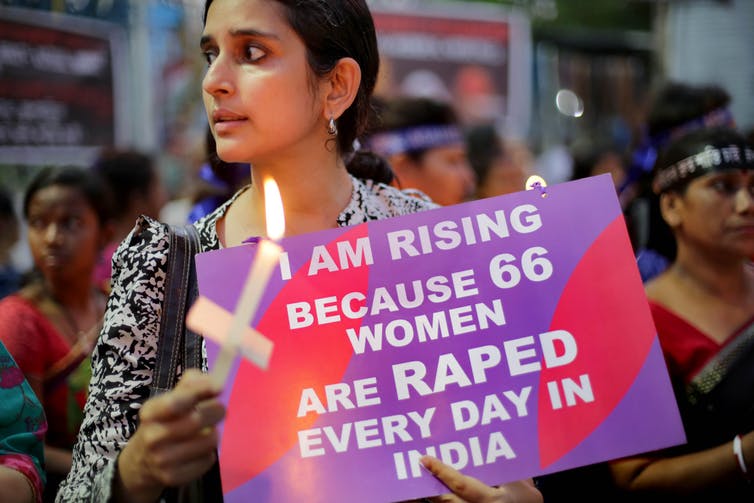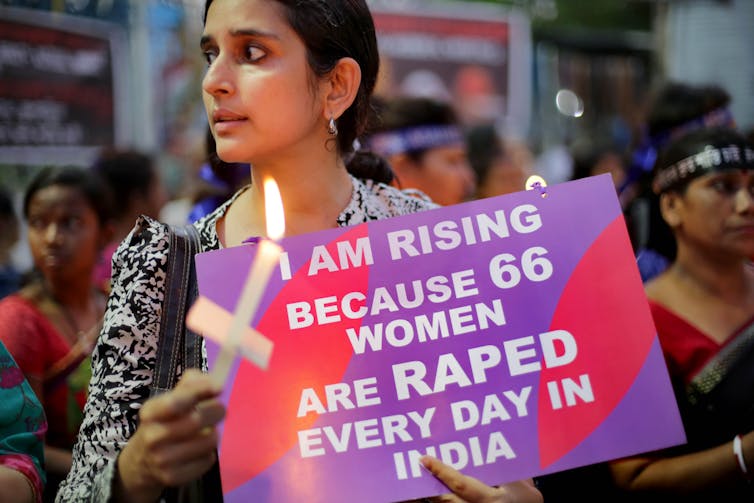India Tomorrow: Women, Gender and Love


Indrajit Roy, University of York and Annabel Bligh, The Conversation
This episode of India Tomorrow, a series from The Anthill podcast, digs into what life is like for women in India. We look at how much they are represented among the country’s lawmakers and whether they might even be considered an electoral group in Indian politics.
Like lots of countries around the world, India suffers from gender inequality. But in terms of global rankings, it scores pretty low – India comes in at number 130 out of 188 countries on the UN Development Programme’s Gender Inequality Index.
India is also pretty low down when it come to global rankings of violence against women. The gang rape of a 23-year-old student in Delhi in 2012 sparked international outrage and led to huge campaigns in India to deal with its rape culture. Nonetheless, you’ll regularly see cases of rape and sexual violence against women of all ages in the local news. India’s National Crime Records Bureau reported more than 300,000 crimes against women – including nearly 40,000 rapes – in 2016, the most recent government data available.
We find out how women in India deal with the day-to-day threat of sexual violence. Sneha Krishnan from the University of Oxford shares stories from her time spent researching the experiences of young women in the city of Chennai. She tells us how women deal with societal expectations to appear “respectable” and limitations like 4pm curfews that are put in place for their own safety. We hear tales of daytime clubbing and how people’s love lives get policed when they strike up relationships across caste and religious lines.
We learn about the phenomenon of “love jihad” from Delhi University historian Charu Gupta. This is the idea that Muslim men are seducing Hindu women to convert them to Islam. But, as Gupta explains, the idea has been proliferated by Hindu nationalists to politically mobilise people and is part of a conservative backlash against women asserting their freedom to love who they want.
We also find out the extent that gender inequality extends to the political sphere. Carole Spary from the University of Nottingham, who’s written a book on women in the Indian parliament, tells us how increasing numbers of women are engaging with politics but many are put off from running for office.
You can read the transcript of this episode here, and also find out more about past and upcoming episodes in our series episode guide.

Subscribe to our Anthill podcast newsletter to hear about new episodes as soon as they drop.
Credits
The Anthill is produced by Gemma Ware and Annabel Bligh. Editing by Alex Portfelix. Thank you to City, University of London’s Department of Journalism for letting us use their studios to record The Anthill.
Picture source: Piyal Adhikary/EPA
Music: Intervention by Lee Rosevere, Flying Cat & Sitar by Tranko, and Endeavour by Jahzzar all via Free Music Archive.
Kerala Love Jihad Case, WION news clip.
Indrajit Roy, Lecturer in Global Development Politics, University of York and Annabel Bligh, Co-host, The Anthill Podcast, The Conversation
This article is republished from The Conversation under a Creative Commons license.





